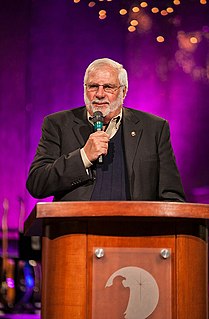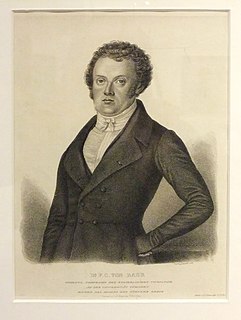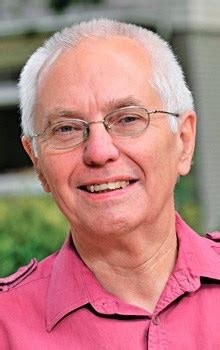A Quote by Philip Schaff
The apostolic writings are of three kinds: historical, didactic, and prophetic.
Related Quotes
When I was commissioned with the purpose of helping to restore prophetic ministry to the Church for its last-day ministry, I was told that it would not be until the prophets and teachers learned to worship the Lord together as they did at Antioch that He would release true apostolic ministry in the Church again.
What kind of authority can there be for an 'Apostle' who, unlike the other Apostles, had never been prepared for the Apostolic office in Jesus' own school but had only later dared to claim the Apostolic office on the basis of his own authority? The only question comes to be how the apostle Paul appears in his Epistles to be so indifferent to the historical facts of the life of Jesus....He bears himself but little like a disciple who has received the doctrines and the principles which he preaches from the Master whose name he bears.
The Bible is a collection of writings by lots of different people written over maybe a thousand years, from a number of centuries before Jesus to a century after Jesus. I often like to refer to it as "the Scriptures" to make that point about it being lots of writings that were originally separate. What these writings have in common is that "the Old Testament" is writings that grabbed the Jewish people; writings that convinced them that they were God's word to them. And "the New Testament" is writings that grabbed people who believed in Jesus in the same way.
It is clear, from these considerations, that the three methods of classifying mankind-that according to physical characters, according to language, and according to culture-all reflect the historical development of races from different standpoints; and that the results of the three classifications are not comparable, because the historical facts do not affect the three classes of phenomena equally. A consideration of all these classes of facts is needed when we endeavour to reconstruct the early history of the races of mankind.
There are dozens of writings outside of the Bible that verify the historical accuracy of many of the names of people, places, and events mentioned in the Bible. In fact, external sources verify that at least eighty persons mentioned in the Bible were actual historical figures. Fifty people from the Old Testament, and thirty people from the New Testament.
The Second Amendment's language and historical and philosophical background demonstrated that it was designed to guarantee individuals the possession of certain kinds of arms for three purposes: (1) crime prevention or what we would today describe as self-defense; (2) national defense; and (3) preservation of individual liberty.





































